QuestionQUESTION: Tucker, our 5 year old border collie/lab mix, has been a dream of a dog for our family of three (husband, wife and 14 yr old daughter). Lately my daughter's new best friend has come over and, as other kids have done, petted Tucker. He has growled at her on 3 separate occasions now. No snarl, just a low rumble. He is usually super docile with kids and adults, and she is as sweet as they come, not a mean child in any way. Why her? What can we do to resolve this? Right now we don't leave him in the same room unless my husband or I am present. BTW, he LOVES this girl's mother.
ANSWER: It's impossible for me to even hypothesize on this without more information. How does she approach the dog? Were you present on all three occasions? If so, what did you observe (in both the dog and the child)? When he first demonstrated this behavior, do you have any idea what was going on around him at the time, what the girl may have been wearing, what other stimuli were around? Do some detective work for me and try to recount these episodes to the best of your ability so I can understand what's going on. This is clearly an aberration in his behavior and there MUST be a provocation (even one that seems insignificant to you.) Please repost with more in depth information and I will help you.
---------- FOLLOW-UP ----------
QUESTION: I understand your frustration with the little info I could supply - there was only so much room in the Question input area. Hopefully this reply one is bigger...
Each time that Tucker has growled at Maggie she had joined our daughter in petting him. I was in the room each time but not involved in the petting. I am thinking that maybe he doesn't like to be petted by more than one person at a time because I notice that he seems to only tolerate my daughter petting him when he has come to me to be petted (he is attached to me). He knows better than to growl at her; he knows his place in our "pack."
In the latest incident he came to me to be petted while I was sitting on the couch. Kelsey(our daughter) came over to sit beside him on the floor and began petting him, too. Then Maggie (sitting beside me on the couch) reached over to pet him. That's when he looked over at her and growled.
Maggie has never spent time around dogs and even petted him the wrong way at first (against the lay of his fur, for instance). This did not cause him to growl, but we quickly corrected her and showed her better ways to pet him. She has always been tentative with him but has never hurt him.
Maybe he is trying to establish himself as higher than she is in the family/pack hierarchy? She has been spending a lot of time at our house. Each time that he has growled we have scolded him and put him up in another room until Maggie went home, but maybe he is trying to adjust to her increasing presence.
We've contemplated just putting him up when Maggie comes over, but I wonder if he might start associating Maggie's coming over with a negative experience and then dislike her even more should he ever encounter her. He's usually a very social animal who loves to be around people. Maybe there's a way to teach him to walk away when someone is disturbing him?
I don't recall anything remarkable about Maggie's attire, or anything else environmental that would have been different on any of the occasions.
My husband and I gave Maggie treats (before this last episode) to encourage her giving him commands and rewarding him. He did some tricks for her but not very readily; he eagerly took the treats, though! Should we do more of this, under close supervision? Or are we risking the growls escalating to a bite?
When Maggie's mom comes to pick her up, Tucker is ecstatic. He goes right to her, yet occasionally looks to me as if to make sure that I am OK with him fawning over another person. I think it's cute, but I can't really interpret what his dog mind is processing here. Maggie's mom is experienced with dogs and definitely comes across as an alpha female.
I should also mention that when we got Tucker as a puppy, he was aggressive toward other dogs, which we corrected. He growled at Kelsey once in his 1st year and I corrected him very strongly, staring at him while having Kelsey stand over him. He's very smart; he hasn't growled at her (or any kid) since and they play very well together. He has even let a visiting child take his favorite treat out of his mouth! I wonder now if he sees Maggie as a child or as an adult.
I look forward to your insights and will gladly answer any other questions that you might have.
ANSWER: Maggie is afraid of Tucker, and he knows it. That's the problem.
She now has a reason to fear him; a growl is a bite waiting to happen. Fear is communicated human to dog through adrenaline (on the breath) and subtle body signals that only a trained eye can perceive in another human. Maggie's tentative approach, trying her best to fit in with the family and maybe totally unconscious of her own hesitation, alerted Tucker to a "problem" and he developed an instantly conditioned fear response to her. Fear is contagious. His performance in obedience to her commands was simply a trained response and he did show hesitancy because she was offering two divergent behaviors: anxiety and authority. Tucker may have a tad of rank opportunism (his growling at Kelsey as a pup, for instance, which may ALSO have been a fear response, I have no way of knowing that). I wouldn't encourage any child to attempt to remove any food or other object from a dog that has growled at anyone, it's an invitation for the possibility of a serious problem. Tucker is learning about aggression because I have no doubt that Maggie is reacting to his growl (as anyone would!)
You have two choices here: you can use positive reinforcement training to teach Tucker one solid behavior ("sit", use a unique word different from the one you now use) and make him EARN every interaction with every member of your family and every visitor for the next two months. This isn't a bad idea even if you choose the next option (appearing below). It conveys authority, helps the dog feel more secure in his place, and increases his cognitive ability. Your children need to be told not to mob Tucker, especially if there is someone present whom he doesn't trust. They also need to understand that this dog is demonstrating a serious behavior and is not the plaything of their friends; if he bites, you will be sued.
Your next option is to put Tucker in a room separate from any area Maggie will be occupying BEFORE she's expected over. He can be confined there with a special treat (kong with tad of peanut butter) and a radio playing, television going, etc. He will not associate this removal with Maggie; he already has learned that he is isolated when Maggie is present (and perhaps does not associate his growl with the reason!) As an alternative, Maggie can be instructed to ignore Tucker altogether, as if he were not there. I don't know how old Maggie is so I don't know if this instruction will be heeded. This situation is serious; the dog will most likely eventually bite this girl (as his growls seem to be escalating according to your description.) Active aggression normally demands in person, hands on evaluation and treatment by a credentialed professional, but because this seems limited to this one child, I offer the above suggestions. However, since you seem to have a lot of children visiting your home, you may consider finding a certified applied animal behaviorist.
---------- FOLLOW-UP ----------
QUESTION: Thank you! We will discuss your response with Maggie's parents so we can come to a mutual agreement. Your analysis makes sense, that his reaction to Maggie (she's 13) is really either to her fear or it's a pack hierarchy kind of thing. We love Maggie and absolutely do not want her to be hurt in any way, even a nip.
Before having the above planned discussions, I prefer the tactic of putting him up before Maggie comes through the door with treats, etc. in his room. After a month or so we could try having them in the same room (with close supervision) but no interaction between the two. In that situation, should she pet him if he comes to her to be petted?
And, just a few clarifications: the growling has not escalated and there were times in between these instances when Maggie petted him and nothing happened. When he growled, of course, they got our immediate attention. We do not encourage anyone messing with him around his food; the child taking his treat ran up to him before we could stop her! Our hearts were in our throats, but Tucker wagged his tail at her apologetically and did nothing. He's usually such a good dog.
Again, thank you for your advice; your response to my "plan" would be most appreciated.
AnswerSeparating Maggie from Tucker for a month is a good idea; he will not know it's because of her; she will, however, know it is. If this child fears the dog, her fear will not extinguish and she's not likely to admit to it, either. When you reintroduce them, have Tucker on a long lightweight nylon lead so you have a way to control his movement without putting your hands on him. Between then and now, use positive reinforcement training to re-teach a 'sit' and ask him for that behavior whenever ANYONE visits, including Maggie (once they are experimentally reunited.) Have one of your children talk to Maggie about this situation, she's more likely to be honest with one of them. This is embarrassing for her. if she does confess to being afraid (I can't tell you how many of my clients' children "confessed" to me that they were afraid of their dog!), don't allow any future interaction between Maggie and Tucker.

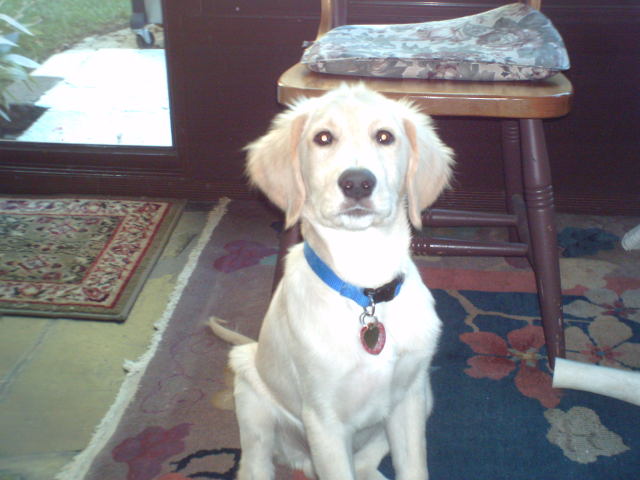 my 7 month old golden changed for the worse
QuestionRiley at 6 months
QUESTION: I got a gold
my 7 month old golden changed for the worse
QuestionRiley at 6 months
QUESTION: I got a gold
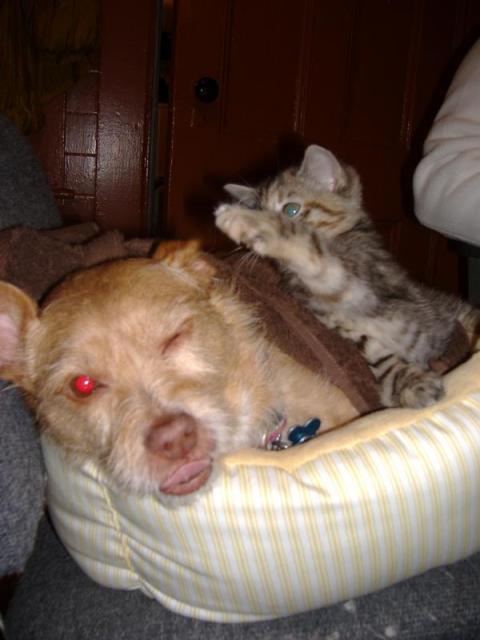 My dog is shaking and hiding under my bed recently
QuestionRorrie and Pencil
QUESTION: My dog, Rorr
My dog is shaking and hiding under my bed recently
QuestionRorrie and Pencil
QUESTION: My dog, Rorr
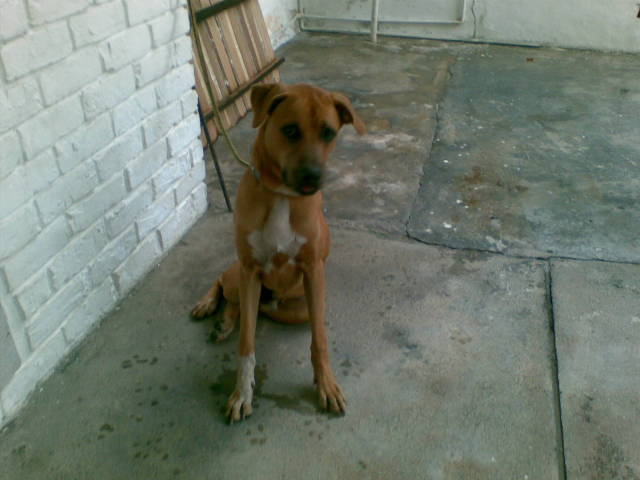 dogs behaviour
QuestionMy 8 months old Dusto
QUESTION: My puppy
dogs behaviour
QuestionMy 8 months old Dusto
QUESTION: My puppy
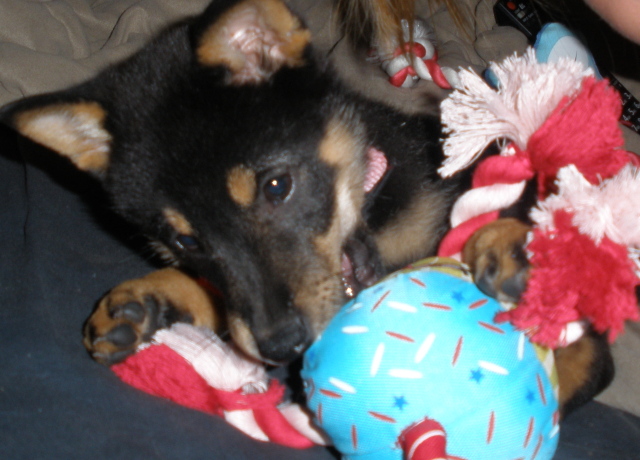 My Shiba Inu
Question
Lola
I bought a registered Shiba Inu puppy fro
My Shiba Inu
Question
Lola
I bought a registered Shiba Inu puppy fro
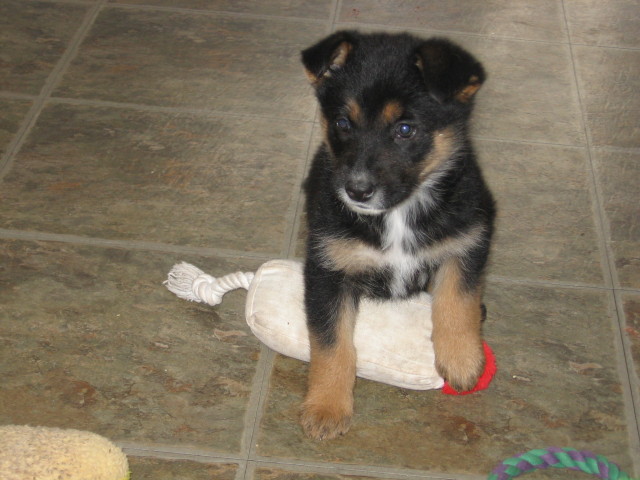 puppy problems
QuestionQUESTION: I am the proud owner of 2 german shep
puppy problems
QuestionQUESTION: I am the proud owner of 2 german shep